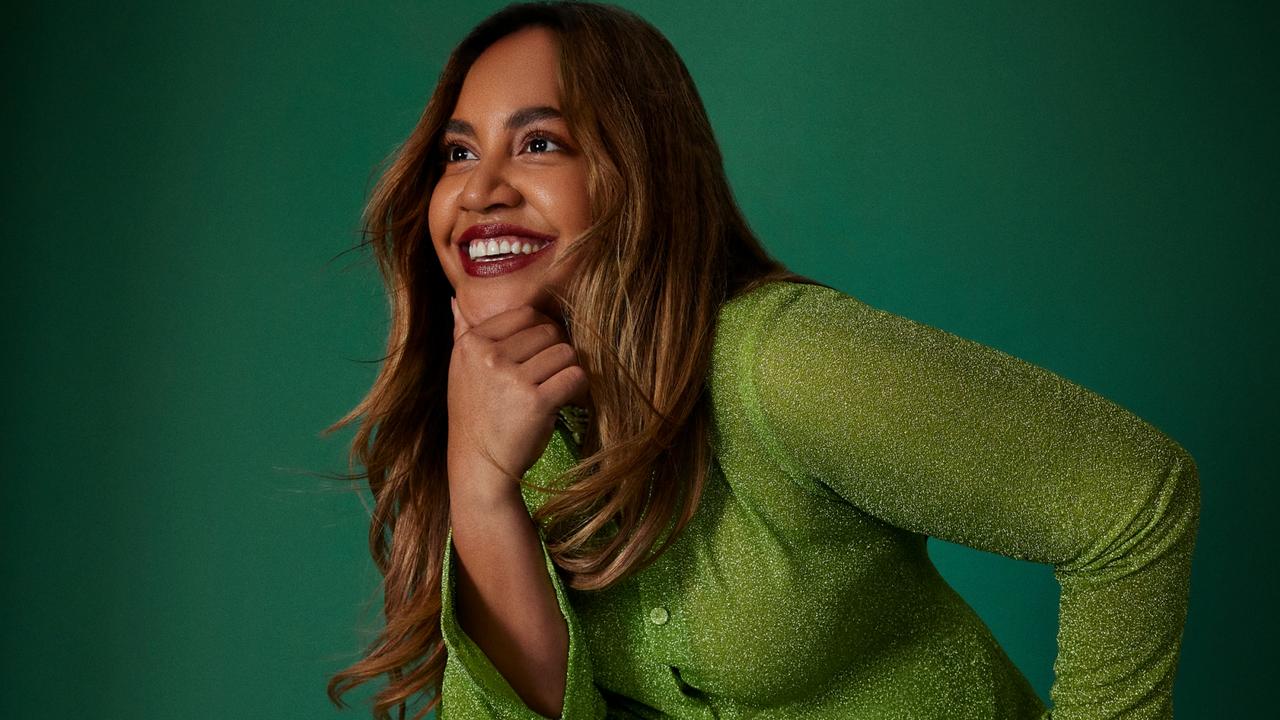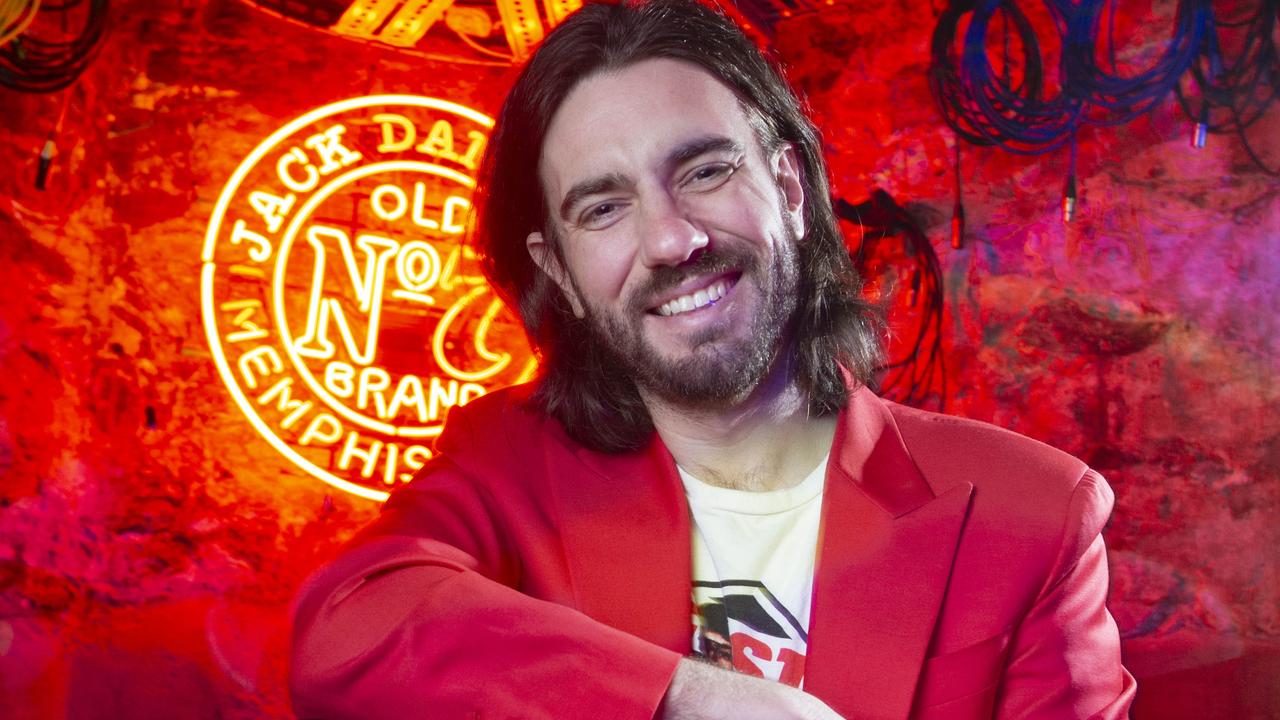The Golden Cockerel | Adelaide Festival 2022 review
A macabre interpretation of Nikolai Rimsky-Korsakov’s opera about the folly of Russian warmongering is uncannily timed.
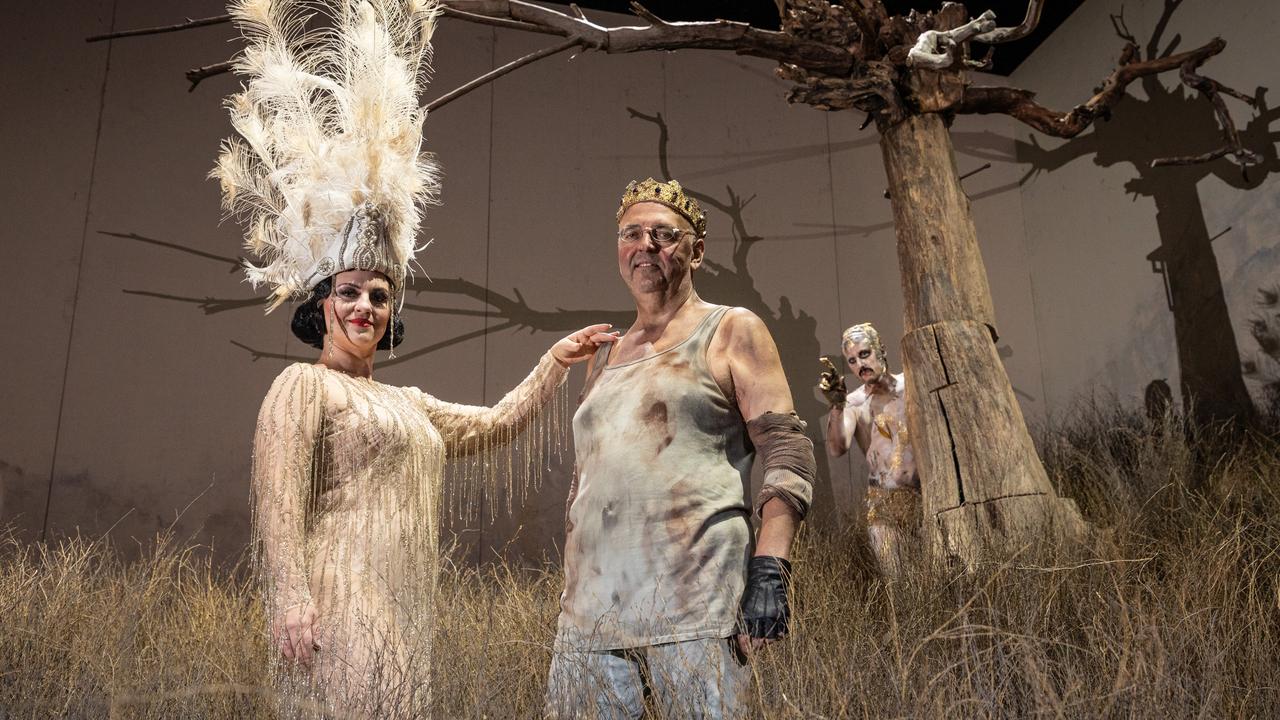
Adelaide Festival
Don't miss out on the headlines from Adelaide Festival. Followed categories will be added to My News.
The Golden Cockerel
Opera – France & Australia
ADELAIDE FESTIVAL
Festival Theatre
Until March 9
Zolotoy Petushok, Le Coq d’Or or The Golden Cockerel – whatever you call it – Nikolai Rimsky-Korsakov’s opera based on Alexander Pushkin’s poem about the folly of Russian warmongering, arrives preternaturally timed in the Adelaide Festival.
So thin was the veil of satire, the heavily censored libretto meant the work wasn’t performed in the composer’s lifetime.
Berlin based Australian director Barrie Kosky’s vision is surreal, at times funny, at times macabre but bleak, very bleak.
There are no colourful cliches, no folk inspired embroidery.
The magic is in the hands of conductor Arvo Volmer, Estonian with Leningrad studies in his training. This music is heartland to him and the Adelaide Symphony Orchestra which he knows well responds superbly.
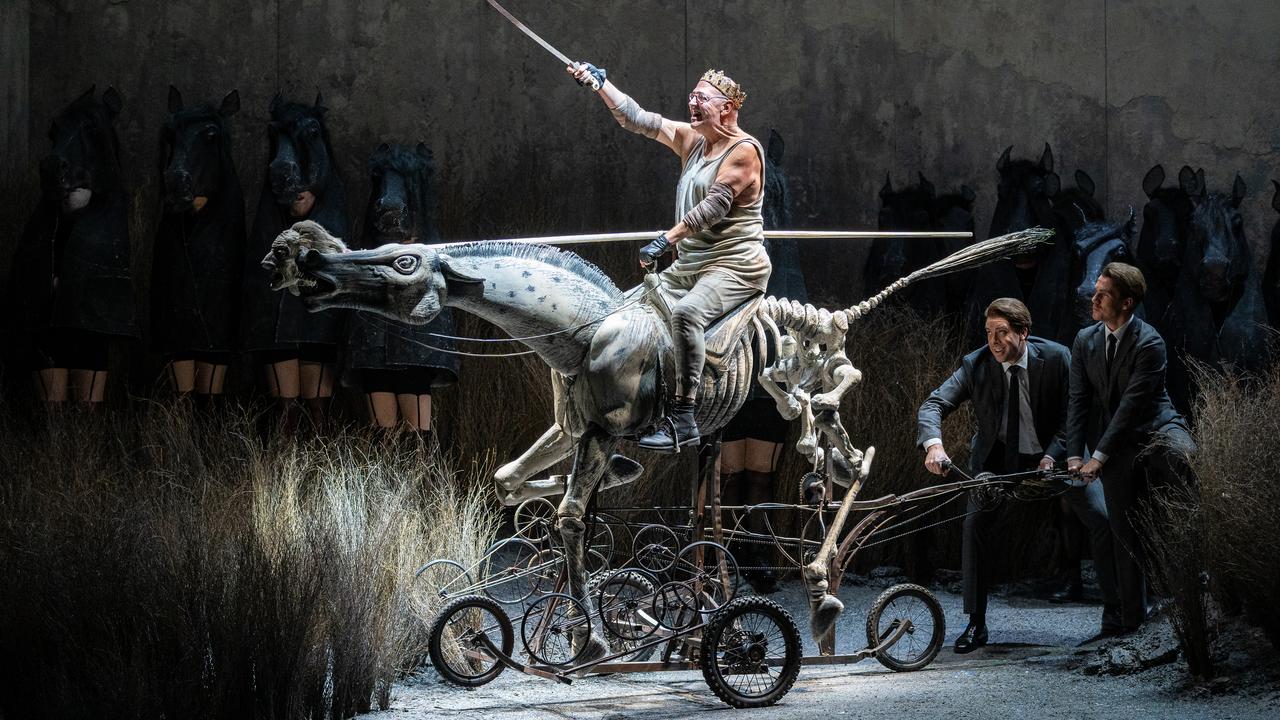
Tsar Dodon, the remarkable British-Ukrainian baritone Pavlo Hunka, is put in grimy long johns. His kingdom is a track through a marsh of desiccated bushes. His people are horses. His best general Polkan, sung by Mischa Schelomianski, is a horse.
His sons Aphron and Gvidon, Samuel Dundas and Nicholas Jones, are well suited in contemporary attire. The golden cockerel, the glittering guardian, is Matthew Whittet, white and clawed, perched in a dead tree but sung, off stage, by the clear soprano voice of Samantha Clarke.
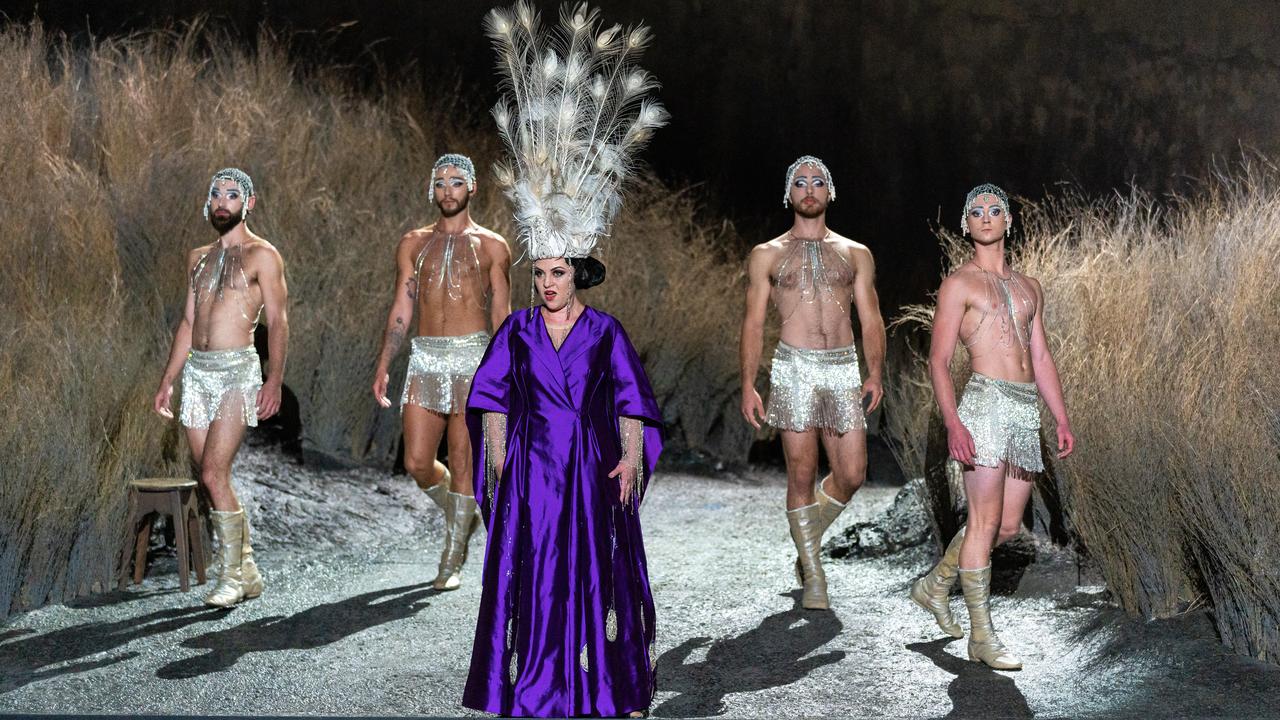
Dodon’s nemesis is the Queen of Chemakha, Venera Gimadieva. She opens with the hymn to the sun, a coloratura showpiece, for decades the only piece of this work known outside Russian borders. She is accompanied by four almost naked male burlesque dancers, probably lured away from a tent in the Fringe.
Come to Chemakha, I’ll make you a star: Her eastern promise, embodied in a long and sensual presentation, reduces Dodon to feet-kissing abjection. She wins.
Two very Russian voices stand out. Andrei Popov is the mysterious astrologer whose stentorian tenor fills the theatre, and Alexandra Durseneva as the nurse Amelfa.
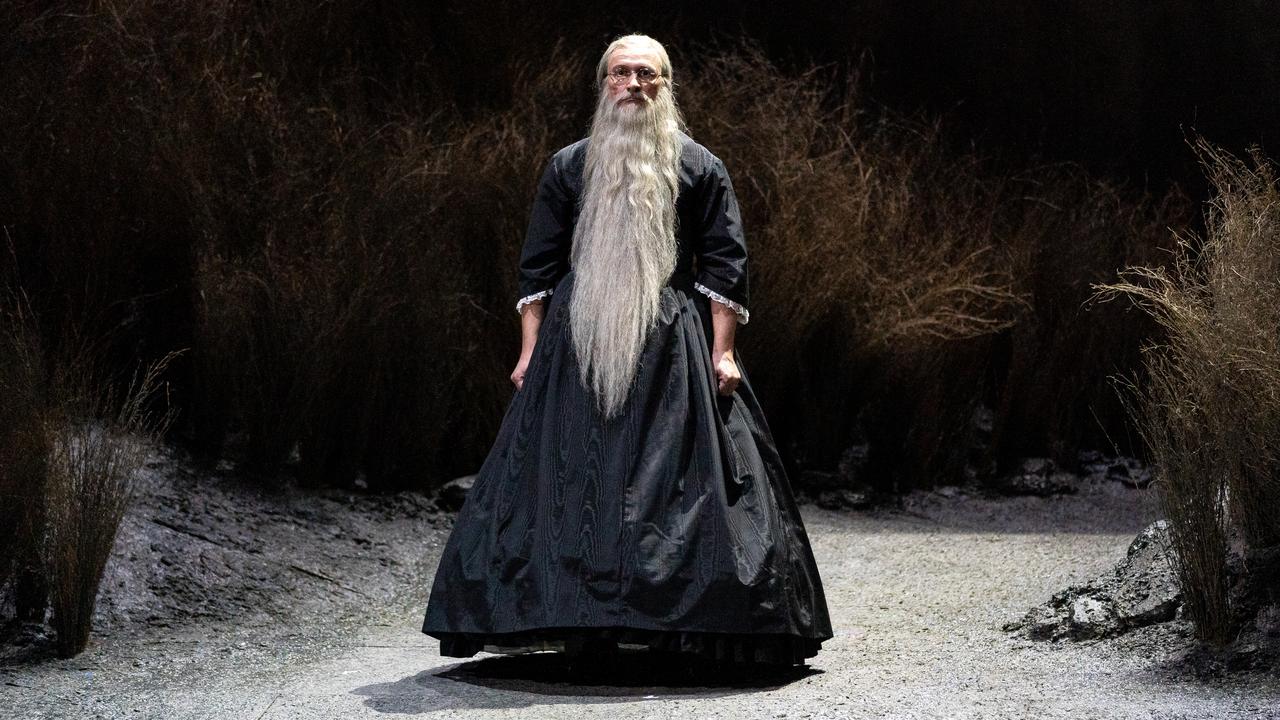
Durseneva has one of those gorgeously deep Slavic mezzo/contralto voices too rare in the West. She’s no elderly maternal retainer. She’s dressed for success. She appears later as an axe-wielding butterfly delivering fake news.
The State Opera Chorus, either hoofed, shrouded or in full party mode are, as we’ve come to expect, superbly dependable and chorus master Anthony Hunt deserves all the praise heading his way.
It would be wrong to give away the amazing moment when the Astrologer returns to call an end to the proceedings. There has been nothing like it before and will probably be nothing like it in Festivals to come. Is gobsmacked a real word?
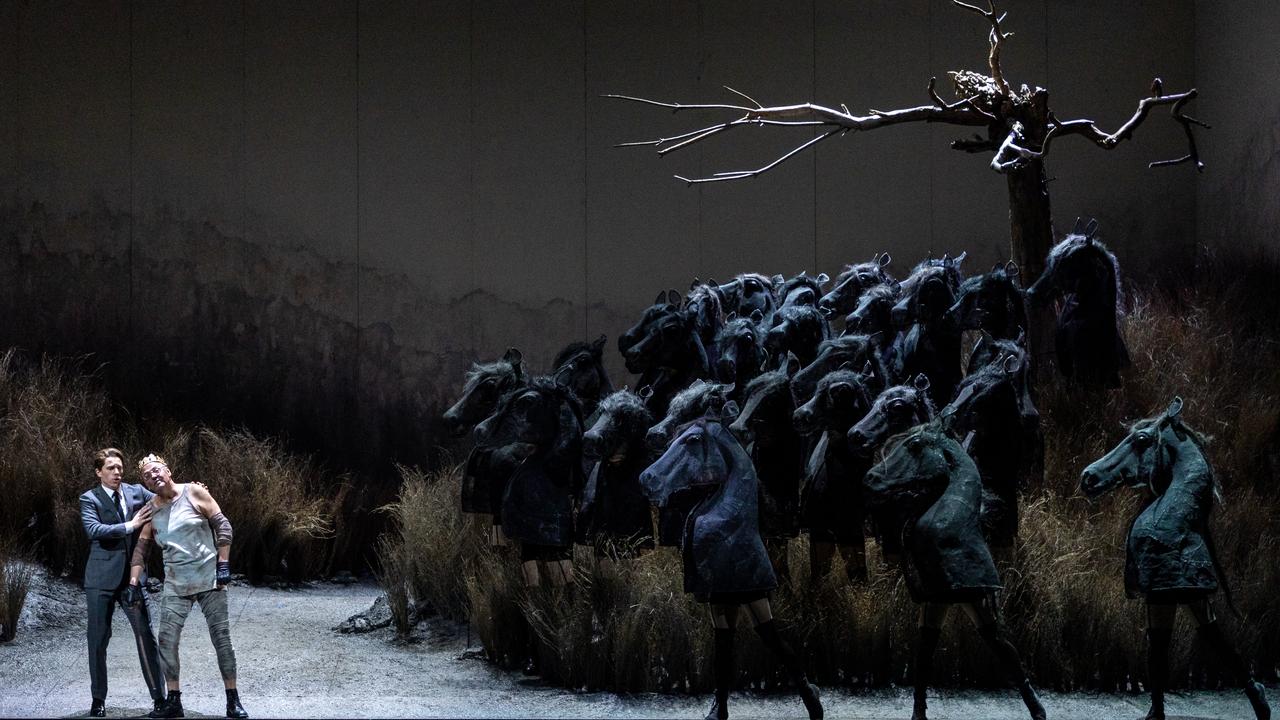
If you are close the stage, you crane your necks for the surtitles. There are jokes, and some of the audience chuckle.
As Dodon says, playing with the severed head of one of his sons: “Why do we send young men off to die?” The answer, my friend, is blowing in the wind.


